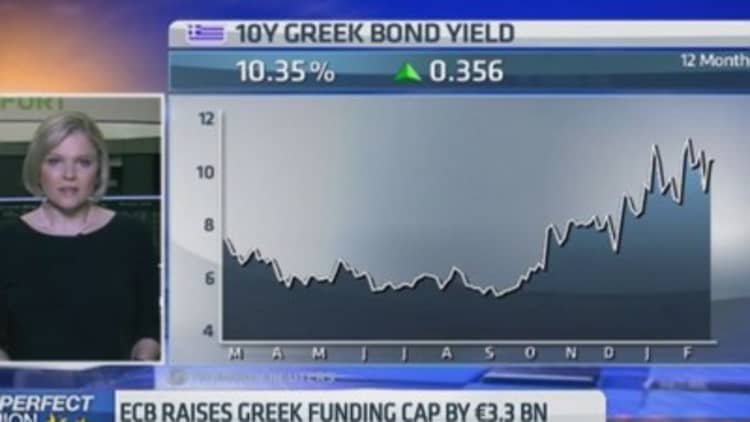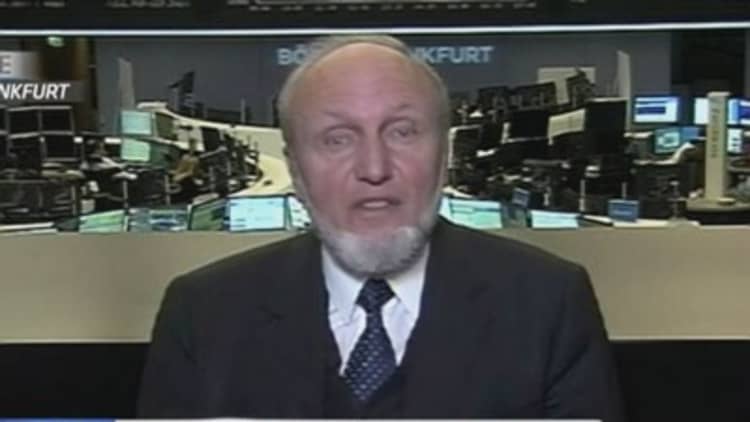


Germany shocked Europe-watchers Thursday after it rejected a request from Greece to extend its euro zone loan program by six months, a day before the deadline.
The Greek government submitted a letter early Thursday to the finance ministers of the euro zone, the Eurogroup, requesting a six-month assistance package, rather than an extension of the bailout, which would come with austerity and reform conditions.
Read MoreGermany rejects Greece's application to extend its loanagreement
"In truth it goes in the direction of a bridge financing, without fulfilling the demands of the program. The letter does not meet the criteria agreed by the Eurogroup on Monday," German finance ministry spokesman Martin Jaeger said in a statement.
As its biggest economy – and therefore contributes the most to any financial aid –Germany is the 19-country euro zone's most powerful member. There is also very little love between the fiscally-disciplined Berlin and anti-austerity Athens.
Read MoreGrexit comes down to Germany, not Greece: Analyst
In a bid to playdown the rebuttal, Greece said it was up to the Eurogroup to make a decision on the request, implying that Germany's rejection on its own was not enough to throw the extension.
Here is what to watch for next:
Friday 20th February:
An emergency Eurogroup meeting is now scheduled for 2 p.m. GMT Friday to discuss the conditions and extension of Greece's loan and bailout. It is also the deadline for Greece to apply for an extension of the bailout program. German Chancellor Merkel and French President Hollande are also set to meet.
"Even ongoing ECB funding will only buy a few weeks, because it will not solve the Greek government's exceptionally tight cash position," said Deutsche Bank strategist George Saravelos
"Over the next few weeks, Greece will, therefore, need to achieve substantial progress on fleshing out the exact parameters of the program as well as voting legislation through parliament. For this to materialize, agreement needs to be reached at Friday's Eurogroup, with another breakdown again bringing ECB liquidity provision back into immediate question," he added.
Tuesday 24th
Greece is required to pay 595 million euros of bond interest to its euro zone creditors. If there is no new agreement in place, the country will start to run out of money to pay down its debts, raising the spectre of a default and a possible exit from the euro zone..
By the end of next week:
Greece's banks could reach the limit of its emergency liquidity pool from the European Central Bank and another renewal will be required. Also the European Union's temporary crisis fund, the European Financial Stability Facility (EFSF) expires on Saturday 28th.
March
Significant Greek payments to the IMF are due.


